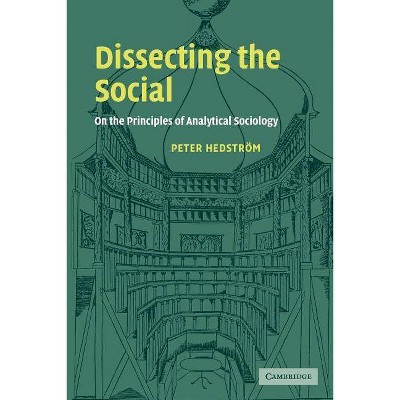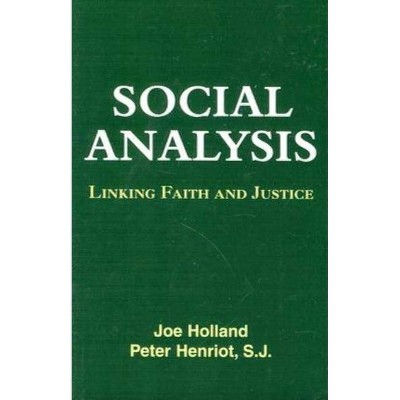Social Trends in American Life - by Peter V Marsden (Paperback)

Similar Products
Products of same category from the store
AllProduct info
<p/><br></br><p><b> Book Synopsis </b></p></br></br><p><b>Changes in American social attitudes and behaviors since the 1970s</b> <p/><i>Social Trends in American Life</i> assembles a team of leading researchers to provide unparalleled insight into how American social attitudes and behaviors have changed since the 1970s. Drawing on the General Social Survey--a social science project that has tracked demographic and attitudinal trends in the United States since 1972--it offers a window into diverse facets of American life, from intergroup relations to political views and orientations, social affiliations, and perceived well-being. <p/>Among the book's many important findings are the greater willingness of ordinary Americans to accord rights of free expression to unpopular groups, to endorse formal racial equality, and to accept nontraditional roles for women in the workplace, politics, and the family. Some, but not all, signs indicate that political conservatism has grown, while a few suggest that Republicans and Democrats are more polarized. Some forms of social connectedness such as neighboring have declined, as has confidence in government, while participation in organized religion has softened. Despite rising standards of living, American happiness levels have changed little, though financial and employment insecurity has risen over three decades. <p/><i>Social Trends in American Life</i> provides an invaluable perspective on how Americans view their lives and their society, and on how these views have changed over the last two generations.</p><p/><br></br><p><b> From the Back Cover </b></p></br></br><p>"<i>Social Trends in American Life</i> provides a comprehensive examination of the dynamics and roots of some of the most contested issues in U.S. society. The decline of community, the increasing tolerance of difference, and the wavering trust in societal institutions are addressed. Focusing on connections and conditions, this volume offers a nuanced look at what we have thought, felt, and done over the last forty years."<b>--Bernice A. Pescosolido, Indiana University</b></p><p>"Every social scientist, even those not usually interested in attitudes or survey measures of behavior, should read this book as a springboard to thinking about the shifting sands of our social fabric, and the value of assessing it through a consistent mechanism."<b>--Lynn Smith-Lovin, Duke University</b></p><p>"<i>Social Trends in American Life</i> represents a significant statement by many excellent scholars about many areas of change in American society over the past forty years. The treatment of attitude change is comprehensive and shows off the strengths of the unique national resource that is the General Social Survey."<b>--Jeremy Freese, Northwestern University</b></p><p>"This book is a superb compendium of original empirical findings on important trends in American social and economic life, all interpreted by leading scholars. <i>Social Trends in American Life</i> is the gold standard against which all other attempts to document social facts and social trends will be judged."<b>--Stephen L. Morgan, Cornell University</b></p><p/><br></br><p><b> Review Quotes </b></p></br></br><br>An important book that should be on every social scientist's desk.-- "Choice"<br><br>The General Social Survey (GSS), a private organization, has been posing questions since 1972, and some of its more interesting findings are in <i>Social Trends in American Life</i>.<b>---Andrew Hacker, <i>New York Review of Books</i></b><br><br>Winner of the 2015 AAPOR Book Award, American Association for Public Opinion Research<br><p/><br></br><p><b> About the Author </b></p></br></br><b>Peter V. Marsden</b> is the Edith and Benjamin Geisinger Professor of Sociology, Harvard College Professor, and Dean of Social Science at Harvard University. He coedited the second edition of the <i>Handbook of Survey Research</i>.
Price History
Price Archive shows prices from various stores, lets you see history and find the cheapest. There is no actual sale on the website. For all support, inquiry and suggestion messagescommunication@pricearchive.us




















